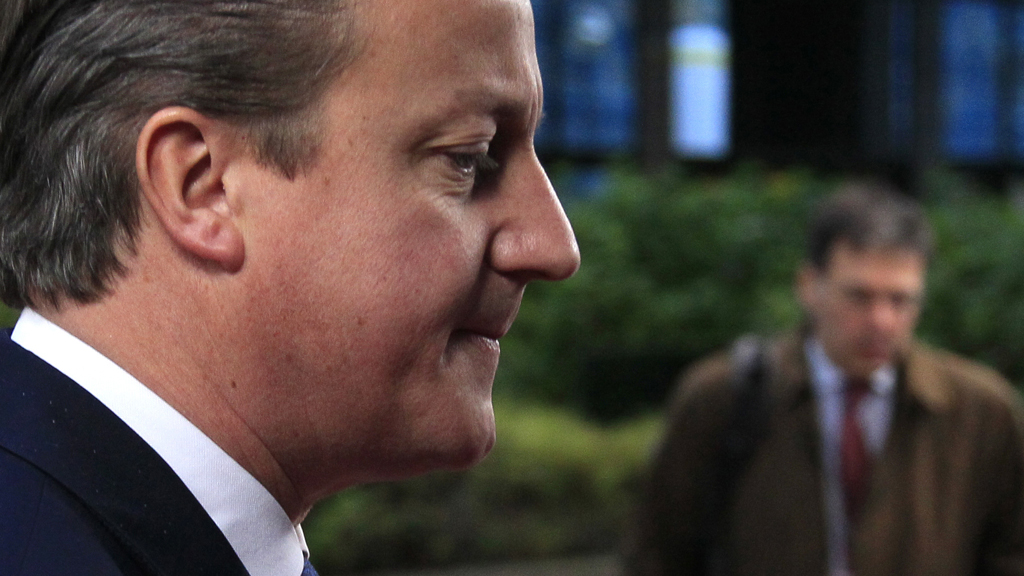David Cameron prepares for EU budget fight
With the Tory party determined to see the EU budget cut and much of the EU preparing to fight for a rise, David Cameron faces a near-impossible negotiation task at the Brussels summit.

Britain’s relationship with Europe is the political issue that led to Margaret Thatcher‘s downfall and is blamed by some as the reason the party was in opposition for 13 years. Add to that, the economic crisis in the eurozone and the Conservatives‘ position as part of a power-sharing coalition, and the stakes as David Cameron prepares himself for the Brussels summit are even higher.
The two-day summit will discuss the terms of the next EU budget for 2014 to 2020. The problem is that different factions within the EU‘s 27 member states have opposing ideas about how much the overall budget should rise, or be cut.
Agreeing a deal
The net contributor countries, including the UK, France, Germany, Sweden and the Netherlands, want to see the budget reduced. But the net recipient countries, which are more reliant on EU funding, argue that increased EU spending will help boost their economies.
Germany's Angela Merkel is the most powerful politician in Europe - but what makes her tick? Gary Gibbon visits her home town and even meets her old maths teacher. Watch the video below.
However while the other net contributor countries are resigned to a compromise, David Cameron is leading the charge against a budget rise, calling it “completely ludicrous”, and has made it known that he is not afraid to use his veto.
He is hoping for a real-terms freeze as opposed to the European Commission’s call for a 4.8 per cent rise, which works out at 1.025tn euros (£824bn) for the full seven year period. The European Council President Herman Van Rompuy, who is chairing the summit, has proposed a lower budget rise of 973bn euros for the full seven-year period.
Read more from Gary Gibbon: CDU source says Cameron wants Germany to blast the UK out of the EU
EU vs domestic pressures
Holding out for a real term freeze is “probably unrealistic” and leaves the UK isolated in Europe, said Philip Whyte, senior research fellow at the Centre for European Reform. “This was also the original negotiating position of the Germans and some of the northern Europeans, but their positions have since shifted,” he told Channel 4 News. “Most seem prepared to countenance a modest real term increase in the size of the EU budget.
Similarly, using his veto to block proposed budget raises, would not go down well with his fellow EU member nations who would see it as a bullying tactic, especially after wielding it last December to block an EU treaty.
However Mr Cameron also faces growing pressure in the opposite direction at home. Earlier this month, Tory eurosceptics were joined by Labour in voting against Mr Cameron for a real terms reduction, rather than a freeze, in the EU budget. The negotiations have also reopened decades-long divisions over Britain’s often fraught EU membership, with support for a British exit from Europe.
In domestic politics, the prime minister’s position on Europe is also tempered by his coalition partner’s generally pro-European stance. British voter’s attitudes are also hardening against Europe, with 56 per cent saying they would vote to leave the EU in a referendum.
Read more: where next for the UK in Europe?
To veto, or not to veto?
In trying to balance his party’s demands with the proposals put forward by the rest of the EU, the Brussels summit looks set to be the prime minister’s mission impossible.
“If Cameron wields the veto, he will be isolated and other EU member-states will see it as further evidence that the UK is no longer able to observe the rules and norms of the club,” Mr Whyte told Channel 4 News, highlighting Mr Cameron’s dilemma.
“But the domestic pressure on Mr Cameron to use the veto every time he goes to Brussels is seen by other countries as intolerable. All 27 member-states face their own domestic pressures, and all must compromise to some degree. The UK cannot be exempted from the rules of this game.”
-
Latest news
-
As India goes to the polls in the world’s largest election – what do British-Indians think?6m

-
Tees Valley: Meet the candidates in one of the biggest contests coming up in May’s local elections4m

-
Keir Starmer says public sector reform will be a struggle7m

-
Nicola Sturgeon’s husband Peter Murrell charged with embezzlement of funds from SNP1m

-
Ukraine might finally get $60billion in American weapons and assistance to defend against Russia3m

-




